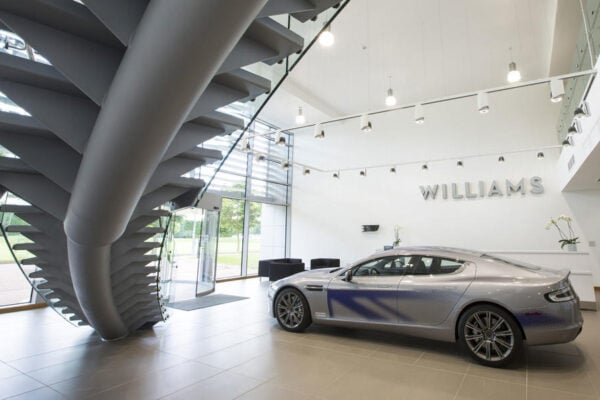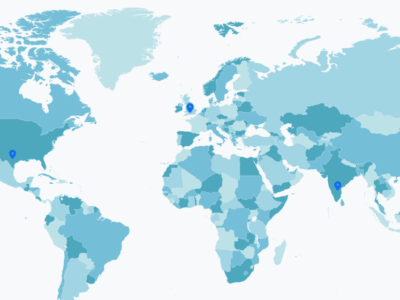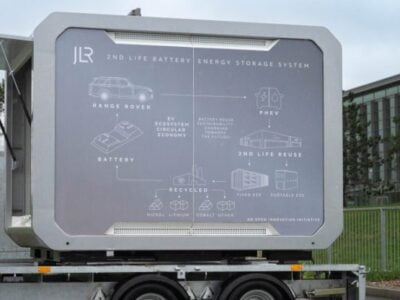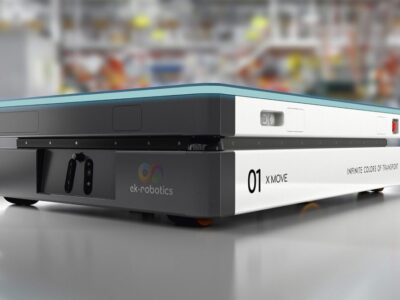
Banning petrol and diesel cars drives UK battery development
Norway is looking to heavily tax such vehicles by 2025, while France has also announced a ban by 2040. The Dutch government is also considering a ban after 2025.
The £246m competition to fund a virtual battery development and manufacturing centre started on July 18th and closes at the end of August. This is run by the Advanced Propulsion Centre (APC) in Coventry, which is already working with racing car developer Williams Engineering, BMW and the Warwick Manufacturing Group (WMG) on a battery manufacturing plant. The The H1PERBAT project will be the largest independent battery manufacturer in the UK, making batteries for Aston Martin’s first fully electric model, the RapidE.
Williams Engineering urged the UK Government to exploit the expertise in ‘Motorsport Valley’, an area in the Midlands that is home to a number of leading motor racing teams.
“We have the opportunity to be at the heart of the clean energy revolution over the next fifty years,” said Craig Wilson, Managing Director of Williams Advanced Engineering. “Already we have seen rapid growth in our battery customer base in the past few years, not just in automotive but beyond. We have accumulated a lot of experience in batteries and battery management systems in motorsport and automotive, so with funding support and collaboration we can make it the next manufacturing growth engine.”
The WMG group at the University of Warwick also hosts the Energy Innovation Centre, a national facility for battery research across the R&D process from materials and electrochemistry through to application integration and recycling and re-use.
“I’m delighted to hear that the Government have announced plans to establish a centre for battery research in the UK. Not only will this support the Industrial Strategy, it will help change the perception of Britain from labs to manufacture,” said Professor Lord Bhattacharyya, Chairman of the WMG.
“Coventry and the sub region has a significant contribution to make in the delivery of the UK’s national industrial strategy, being in a strong position to lead the advancement of battery development, and vehicle electrification and autonomous vehicles. It will be at the heart of the drive to make the city a smart motor city,” he said.
But there is potential competition from a new Institute for Advanced Automotive Propulsion Systems (IAAPS) being built on the Bristol and Bath Science Park.
IAAPS will be a global centre of excellence for the development of future generations of ultra-low emission vehicles. Construction of the £60m IAAPS facility will start in the summer of 2018, and it is scheduled to open in early 2020.
The Institute will exploit the engineering expertise of the University of Bath with backing from McLaren, Ford, Jaguar Land Rover, Hofer Powertrain and HORIBA Group, as well as more local businesses such as HiETA Technologies.
“IAAPS will support the development of a much larger and more competitive automotive business cluster in the region, providing access to its state-of-the art facilities to start-ups and small to medium-sized companies,” said Tim Bowles, Mayor of the Est of England. “Supporting innovation and business growth is key to our economic success. I want to see our businesses fulfil their potential, and will ensure our policies support businesses to start and grow here in the West of England.”
www.apcuk.co.uk/competitions/faradaychallenge-nbdf/
Related stories:
- WILLIAMS LEADS CONSORTIUM TO BUILD MAJOR UK BATTERY FACTORY
- BATTERY CHARGES IN SECONDS
- STARTUP PLANS NEW LITHIUM-ION BATTERY GIGAFACTORY
 If you enjoyed this article, you will like the following ones: don't miss them by subscribing to :
eeNews on Google News
If you enjoyed this article, you will like the following ones: don't miss them by subscribing to :
eeNews on Google News




